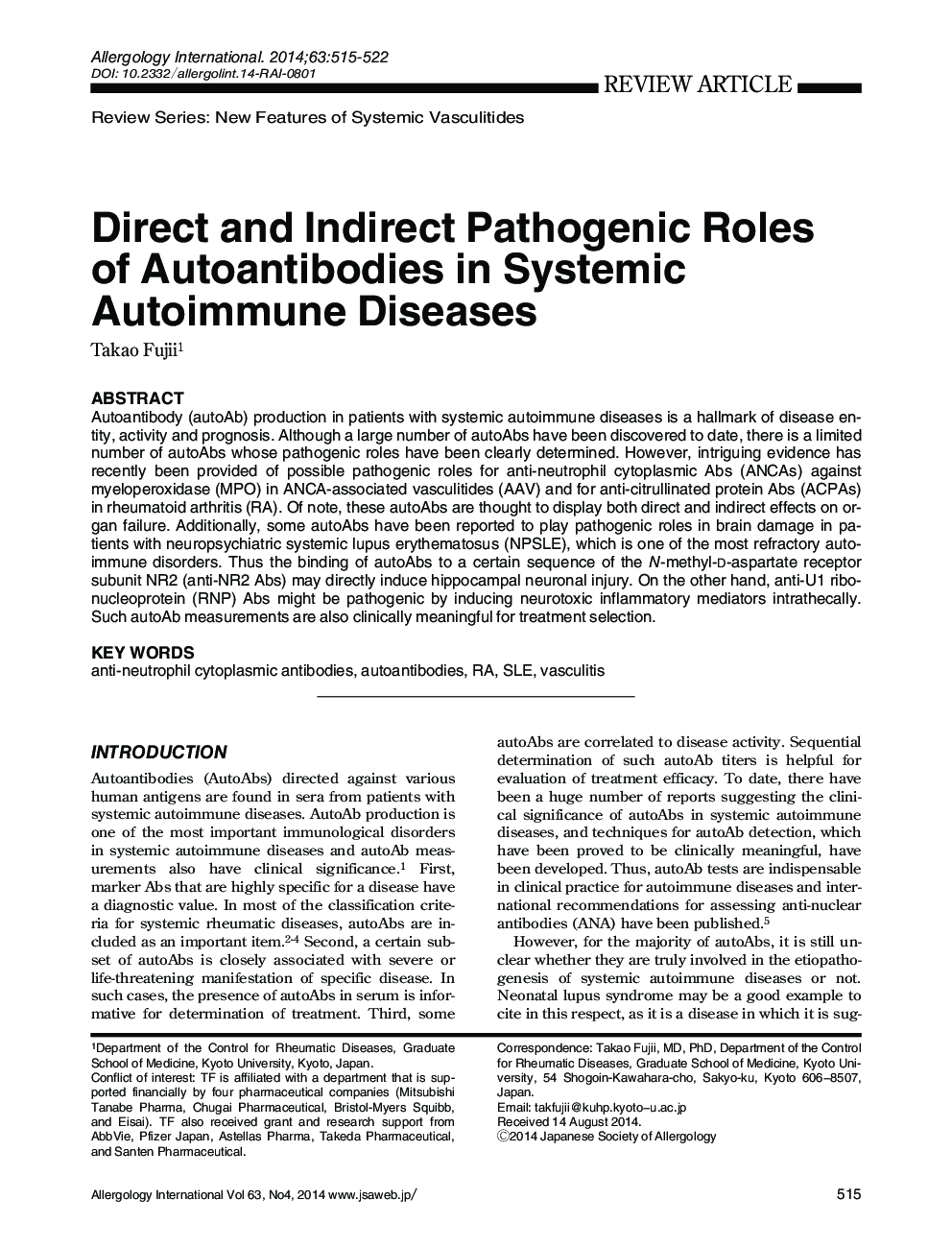| Article ID | Journal | Published Year | Pages | File Type |
|---|---|---|---|---|
| 3340603 | Allergology International | 2014 | 8 Pages |
ABSTRACTAutoantibody (autoAb) production in patients with systemic autoimmune diseases is a hallmark of disease entity, activity and prognosis. Although a large number of autoAbs have been discovered to date, there is a limited number of autoAbs whose pathogenic roles have been clearly determined. However, intriguing evidence has recently been provided of possible pathogenic roles for anti-neutrophil cytoplasmic Abs (ANCAs) against myeloperoxidase (MPO) in ANCA-associated vasculitides (AAV) and for anti-citrullinated protein Abs (ACPAs) in rheumatoid arthritis (RA). Of note, these autoAbs are thought to display both direct and indirect effects on organ failure. Additionally, some autoAbs have been reported to play pathogenic roles in brain damage in patients with neuropsychiatric systemic lupus erythematosus (NPSLE), which is one of the most refractory autoimmune disorders. Thus the binding of autoAbs to a certain sequence of the N-methyl-D-aspartate receptor subunit NR2 (anti-NR2 Abs) may directly induce hippocampal neuronal injury. On the other hand, anti-U1 ribonucleoprotein (RNP) Abs might be pathogenic by inducing neurotoxic inflammatory mediators intrathecally. Such autoAb measurements are also clinically meaningful for treatment selection.
